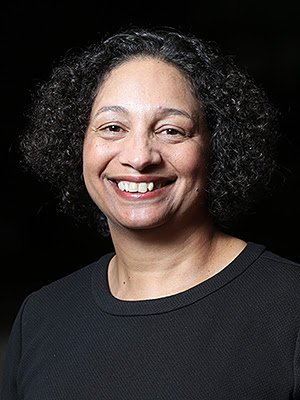
(WEST LAFAYETTE) — For almost 50 years, the North Central Regional Center for Rural Development (NCRCRD), funded by the U.S. Department of Agriculture’s National Institute of Food and Agriculture and the land-grant universities in the 12-state region, has addressed issues critical to the growth and impact of rural communities.
On Tuesday (Sept. 1), the NCRCRD moves to Purdue University for the first time in its history. NCRCRD is one of four regional centers funded by USDA-NIFA and their member institutions.

Maria Marshall, the new NCRCRD director, is a professor of agricultural economics who joined the Purdue faculty in 2003. Marshall, who also is director of the Purdue Institute for Family Business, has a nationally and internationally recognized integrated Extension, research and teaching program focused on small and family business development.
“Purdue and the College of Agriculture have always had a deep commitment to rural development. Interdisciplinary strengths are what we can bring to the rest of the region and for the betterment of rural communities across the nation and world,” she said about the significance of NCRCRD moving to Purdue.

Michael Wilcox, Purdue Extension’s assistant director and program leader for community development and a community and regional economics specialist in agricultural economics, will be the NCRCRD’s associate director. He emphasized that the NCRCRD also will continue to build on existing priorities.
“One of the things Michigan State University (where NCRCRD has been located for the past decades) started was to more deliberately involve the 1890 and 1994 universities. We want to build on that to foster rural development through diversity, equity and inclusion efforts.”
Black land-grant universities were established in 1890, 28 years after the first land-grant legislation was passed. The 1994 Tribal Colleges and Universities are supported by the National Institute of Food and Agriculture through the 2018 Farm Bill. There are two 1890 universities and 19 1994 colleges and universities in the north-central region.
Among the goals outlined by Purdue during the selection process is the creation and maintenance of a north-central regional panel dataset that will enable and motivate collaboration across states and across research and Extension. Marshall describes this effort as leading to building more resilient rural communities.
“The dataset will provide information to faculty who might not otherwise have the resources,” she said. “My whole career has been about developing multistate efforts that translated research in some shape or form to make people’s lives better. The center provides a platform for the region to be able to do that on a larger scale.”
Jason Henderson, senior associate dean and director of Purdue Extension, described how Purdue will contribute to NCRCRD.
“Purdue has a long history of collaboration that serves Indiana, the region, the nation and the world,” he said. “I know Maria and Michael will combine their strengths and amplify the impact of NCRCRD.”
Bernie Engel, Purdue Agriculture’s associate dean of research, credited Purdue’s proposal for including a substantial research component to bring together strengths across the states.
“The multidisciplinary approach of this proposal — including collaboration across areas such as health and human sciences, youth development and agricultural and natural resources — will create connective tissue across disciplines as well as states and institutions,” he said.
Marshall and Wilcox bring previous experience with the regional rural development centers to their new roles.
“NCRCRD has a wonderful opportunity to support research, Extension and teaching and bring together great minds to support rural development in our region and throughout the world,” Marshall said.
Information by Maureen Manier mmanier@purdue.edu



